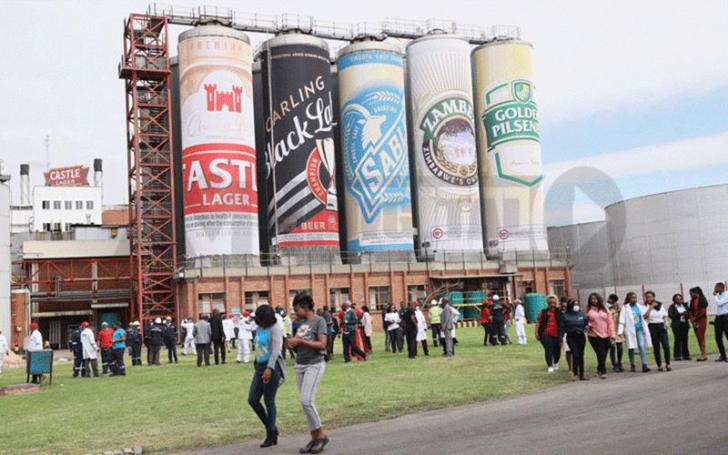News / National
Delta tax burden could soar to US$329m
11 hrs ago | Views

Beverage giant Delta Corporation Limited risks a staggering US$329 million tax liability for its financial year ended March 31, 2025, if it loses ongoing court appeals against additional tax assessments totalling US$74.8 million issued by the Zimbabwe Revenue Authority (Zimra).
As first reported by NewsDay Business in January, Delta had already disclosed that it could face tax payments exceeding US$250 million for the year, due to a range of contentious charges from Zimra. These include disputed additional assessments on exchange rate conversions, a sugar tax levied at US$0.001 per gramme in beverages, value-added tax (VAT), excise duties, and income tax.
In a recent analyst briefing, Delta's management outlined the company's tax burden, revealing confirmed tax payments of US$254.15 million — comprising US$230.35 million in indirect taxes such as VAT, excise duties, and the sugar tax, plus US$23.8 million in income tax. These represent significant increases from the prior year: a 19% rise in indirect taxes and a dramatic 516.52% jump in income tax.
Adding to this burden is the US$74.8 million in additional tax assessments currently under appeal, pushing the potential total tax liability to US$329 million.
"Disputes over tax liabilities and exchange rate policies introduce financial uncertainties," Delta CEO Matlhogonolo Valela acknowledged during the presentation. He confirmed the company's ongoing engagement with authorities to seek fair and sustainable resolutions.
To offset rising tax costs, Delta adjusted its product prices, contributing to revenue growth of US$807.47 million for the year — a 5% increase from the previous period. Delta chairman Todd Moyo noted that this growth was driven by higher lager beer volumes and price increases related to the sugar tax on sparkling beverages.
"Approximately 80% of domestic sales were conducted in foreign currency for most of the year," Moyo said, "though fluctuations occurred due to the performance of the formal retail sector and enforcement of dual pricing regulations."
Despite the tax pressures, the company reported a 16% increase in profit after tax, reaching US$116.14 million, supported by a 70.33% reduction in exchange losses to US$12.32 million.
Delta is contesting Zimra's additional assessments on the basis that local currency payments were made at the relevant times, but these have been severely devalued through inflation and currency depreciation. The disputed amount covers principal tax, penalties, and interest on VAT and income tax from 2019 to 2022.
The company noted that "adverse judgments" have been made by both the High Court and Supreme Court, but appeals and new cases remain active, including at the Constitutional Court and through Zimra's internal appeals process.
In line with Zimbabwe's "pay now, argue later" tax policy, Delta has already paid US$11.4 million as of March 31, 2025, under existing payment plans.
Delta has also indicated that it may settle any final tax liabilities using its significant holdings of government Treasury Bills, which could help mitigate immediate cash flow pressures.
This ongoing tax dispute highlights the growing fiscal challenges faced by Zimbabwean companies amid complex tax regimes and currency volatility, with Delta at the forefront as the country's largest listed firm grappling with mounting costs.
As first reported by NewsDay Business in January, Delta had already disclosed that it could face tax payments exceeding US$250 million for the year, due to a range of contentious charges from Zimra. These include disputed additional assessments on exchange rate conversions, a sugar tax levied at US$0.001 per gramme in beverages, value-added tax (VAT), excise duties, and income tax.
In a recent analyst briefing, Delta's management outlined the company's tax burden, revealing confirmed tax payments of US$254.15 million — comprising US$230.35 million in indirect taxes such as VAT, excise duties, and the sugar tax, plus US$23.8 million in income tax. These represent significant increases from the prior year: a 19% rise in indirect taxes and a dramatic 516.52% jump in income tax.
Adding to this burden is the US$74.8 million in additional tax assessments currently under appeal, pushing the potential total tax liability to US$329 million.
"Disputes over tax liabilities and exchange rate policies introduce financial uncertainties," Delta CEO Matlhogonolo Valela acknowledged during the presentation. He confirmed the company's ongoing engagement with authorities to seek fair and sustainable resolutions.
To offset rising tax costs, Delta adjusted its product prices, contributing to revenue growth of US$807.47 million for the year — a 5% increase from the previous period. Delta chairman Todd Moyo noted that this growth was driven by higher lager beer volumes and price increases related to the sugar tax on sparkling beverages.
Despite the tax pressures, the company reported a 16% increase in profit after tax, reaching US$116.14 million, supported by a 70.33% reduction in exchange losses to US$12.32 million.
Delta is contesting Zimra's additional assessments on the basis that local currency payments were made at the relevant times, but these have been severely devalued through inflation and currency depreciation. The disputed amount covers principal tax, penalties, and interest on VAT and income tax from 2019 to 2022.
The company noted that "adverse judgments" have been made by both the High Court and Supreme Court, but appeals and new cases remain active, including at the Constitutional Court and through Zimra's internal appeals process.
In line with Zimbabwe's "pay now, argue later" tax policy, Delta has already paid US$11.4 million as of March 31, 2025, under existing payment plans.
Delta has also indicated that it may settle any final tax liabilities using its significant holdings of government Treasury Bills, which could help mitigate immediate cash flow pressures.
This ongoing tax dispute highlights the growing fiscal challenges faced by Zimbabwean companies amid complex tax regimes and currency volatility, with Delta at the forefront as the country's largest listed firm grappling with mounting costs.
Source - newsday



























